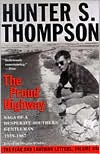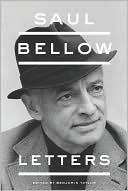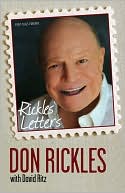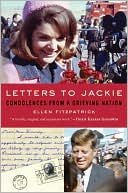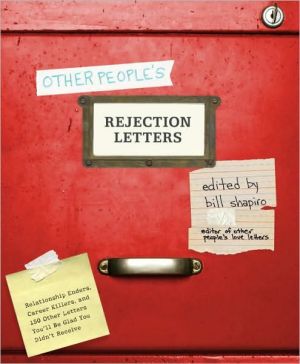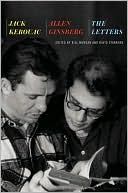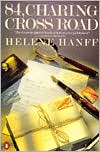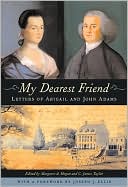The Proud Highway: Saga of a Desparate Southern Gentleman, 1955-1967
Here, for the first time, is the private and most intimate correspondence of one of America's most influential and incisive journalists—Hunter S. Thompson. In letters to a Who's Who of luminaries from Norman Mailer to Charles Kuralt, Tom Wolfe to Lyndon Johnson, William Styron to Joan Baez—not to mention his mother, the NRA, and a chain of newspaper editors—Thompson vividly catches the tenor of the times in 1960s America and channels it all through his own razor-sharp perspective. Passionate...
Search in google:
Here, for the first time, is the private and most intimate correspondence of one of America's most influential and incisive journalists—Hunter S. Thompson. In letters to a Who's Who of luminaries from Norman Mailer to Charles Kuralt, Tom Wolfe to Lyndon Johnson, William Styron to Joan Baez—not to mention his mother, the NRA, and a chain of newspaper editors—Thompson vividly catches the tenor of the times in 1960s America and channels it all through his own razor-sharp perspective. Passionate in their admiration, merciless in their scorn, and never anything less than fascinating, the dispatches of The Proud Highway offer an unprecedented and penetrating gaze into the evolution of the most outrageous raconteur/provocateur ever to assault a typewriter.Charles TaylorIn his introduction to the The Proud Highway -- the first in what apparently will be several volumes of Hunter Thompson's letters -- editor Douglas Brinkley informs us that, from the time he was a boy, Thompson made carbon copies of his letters, "hoping they would be published someday as a testament to his life and times." And if that doesn't suggest someone in need of an editor, I don't know what does. This first volume of The Fear and Loathing Letters covers the years from 1955 to 1967 -- that's roughly from the time Thompson joined the Air Force until just after the publication of his book Hell's Angels and before the beginning of his Rolling Stone tenure. These letters show that the mind-set that burst fully formed upon the world in Fear and Loathing in Las Vegas was present in Thompson from a very early age. The talent for violent invective and hipster put-on, the snarlingly self-righteous threats, the taste for all manner of chemical debauchery, is owned up to again and again in letters to friends and lovers, editors and Air Force superiors, creditors, landlords and any poor bastard who had the bad luck to run afoul of him. What hasn't been seen before is the young writer's ambition, the worship he lauded upon certain authors or books (F. Scott Fitzgerald, Nelson Algren, the William Styron of Lie Down in Darkness -- "This man is a Writer," proclaims Thompson -- but not of Set This House on Fire). He desperately desired to join their company, and he had confidence that he would. Thompson is a writer who needs rage. He's best when he finds a target worthy of the venom he can incubate. That's why he was always the most murderous and accurate of all Nixon haters. And why the only work in the last few years that matched his glory days was his Rolling Stone obit for Nixon. In the midst of the sentimental lies that accompanied Tricky's demise (and by the way, did anyone actually see the body?), Thompson's poison felt like a drink of clear water. That rage is best seen here in the letters written after JFK's assassination, with Thompson's mourning translating itself into disgust and fear of what lay ahead. It's less impressive when it's being snottily leveled at a woman friend who had the temerity to suggest Thompson read Jack Kerouac. It's hard to reject the young romantic who -- writing about women, his own ambitions, his beloved Doberman -- makes himself unexpectedly felt here. It's also hard to deny the tediousness of this collection. There are plenty of reminders, though, of why this drug-addled coyote has been taken to readers', and not a few writers', hearts. "Too many people in this gutless world," he writes to one editor, "have come under the impression that writers are a race of finks, queers and candy asses to be bilked, cheated and mocked as a form of commercial sport. It should be noted, therefore ... that some writers possess .44 Magnums and can puncture beer cans with ... that weapon at a distance of 150 yards." Sometimes, as Blanche DuBois said, there's God so suddenly. -- Salon
\ Charles TaylorIn his introduction to the The Proud Highway -- the first in what apparently will be several volumes of Hunter Thompson's letters -- editor Douglas Brinkley informs us that, from the time he was a boy, Thompson made carbon copies of his letters, "hoping they would be published someday as a testament to his life and times." And if that doesn't suggest someone in need of an editor, I don't know what does. This first volume of The Fear and Loathing Letters covers the years from 1955 to 1967 -- that's roughly from the time Thompson joined the Air Force until just after the publication of his book Hell's Angels and before the beginning of his Rolling Stone tenure.\ These letters show that the mind-set that burst fully formed upon the world in Fear and Loathing in Las Vegas was present in Thompson from a very early age. The talent for violent invective and hipster put-on, the snarlingly self-righteous threats, the taste for all manner of chemical debauchery, is owned up to again and again in letters to friends and lovers, editors and Air Force superiors, creditors, landlords and any poor bastard who had the bad luck to run afoul of him. What hasn't been seen before is the young writer's ambition, the worship he lauded upon certain authors or books (F. Scott Fitzgerald, Nelson Algren, the William Styron of Lie Down in Darkness -- "This man is a Writer," proclaims Thompson -- but not of Set This House on Fire). He desperately desired to join their company, and he had confidence that he would.\ Thompson is a writer who needs rage. He's best when he finds a target worthy of the venom he can incubate. That's why he was always the most murderous and accurate of all Nixon haters. And why the only work in the last few years that matched his glory days was his Rolling Stone obit for Nixon. In the midst of the sentimental lies that accompanied Tricky's demise (and by the way, did anyone actually see the body?), Thompson's poison felt like a drink of clear water. That rage is best seen here in the letters written after JFK's assassination, with Thompson's mourning translating itself into disgust and fear of what lay ahead. It's less impressive when it's being snottily leveled at a woman friend who had the temerity to suggest Thompson read Jack Kerouac.\ It's hard to reject the young romantic who -- writing about women, his own ambitions, his beloved Doberman -- makes himself unexpectedly felt here. It's also hard to deny the tediousness of this collection. There are plenty of reminders, though, of why this drug-addled coyote has been taken to readers', and not a few writers', hearts. "Too many people in this gutless world," he writes to one editor, "have come under the impression that writers are a race of finks, queers and candy asses to be bilked, cheated and mocked as a form of commercial sport. It should be noted, therefore ... that some writers possess .44 Magnums and can puncture beer cans with ... that weapon at a distance of 150 yards." Sometimes, as Blanche DuBois said, there's God so suddenly. -- Salon\ \ \ \ \ \ Publishers Weekly - Publisher's Weekly\ Thompson (Fear and Loathing in Las Vegas), according to editor Brinkley, has written more than 20,000 letters. For bile and outrageousness, this first volume in a collection of those letters to friends, editors, agents and others is peerless. When literary agent Sterling Lord declined to represent him, Thompson threatened to "cave in your face and scatter your teeth all over Fifth Avenue." Struggling to earn a living by freelancing, the author wrote President Johnson (addressed as "Dear Lyndon"), requesting he appoint Thompson governor of American Samoa to afford him a "pacific place" in which to write a novel "of overwhelming importance." Railing against corruption and stupidity, temperamentally unable to suffer the authority of fools, Thompson cannot keep regular jobs and roams the world, forever struggling for money and desperate for recognition of his considerable talent. But he doesn't hesitate to address the few writers and editors he admires with requests for help, comments on their work or generous praise. By turns exasperating and entertaining, this is also a devastating portrait of the writer as an incorrigible outsider. (June)\ \ \ Library Journal"I'm already the new Fitzgerald," Thompson declares gamely at age 19, in 1957, as his cracking lifelong correspondence gets under way. "I just haven't been recognized yet." The original gonzo journalist, who struck the big time with his book on the Hell's Angels ten years later (when this first volume of correspondence terminates), amply displays his talent for bragging--and barking--in these self-consciously irreverent, wordy, and often tender letters he was fond of banging out impulsively to friends like William J. Kennedy (Ironweed); magazine editors from whom he hoped to scare up work; youths who asked for career advice; Lyndon Johnson, when asking for the job of governor of American Samoa; and writers whose work he read with violent pleasure or loathing (Norman Mailer, William Styron, Nelson Algren). Thompson enjoyed messing up wherever he could but he never lost a grip on his desire to become a damn good writer. This is a shot in the liver for struggling writers and a searing testimony to an important moment in American journalism. Highly recommended. [Previewed in Prepub Alert, LJ 2/1/97.]Amy Boaz, "Library Journal"\ \
